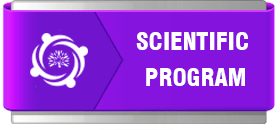
Daniel J. Soeder
South Dakota School of Mines & Technology, USA
Title: Groundwater Quality and Fracking: Current Understanding and Science Needs
Biography
Biography: Daniel J. Soeder
Abstract
The National Ground Water Association in the United States hosted workshops in 2014 and 2017 to bring together a group of nearly 100 prominent North American hydrology researchers to assess the current understanding of potential risks to groundwater quality from hydraulic fracturing (“fracking”) and unconventional oil and gas development.
The consensus from both meetings was that fracking poses two main risks to groundwater quality: 1) stray gas migration, and 2) potential contamination from chemical and fluid spills. Risk assessment is complicated by the lack of pre-drilling baseline measurements, limited access to well sites and industry data, the constant introduction of new chemical additives to frack fluids, and difficulties comparing data sets obtained by different sampling and analytical methods. Specific recommendations to reduce uncertainties and meet science needs for better assessment of groundwater risks include improving data-sharing among researchers, adopting standardized methodologies, collecting pre-drilling baseline data, installing dedicated monitoring wells, developing shale-specific environmental indicators, and providing greater access to field sites, samples, and industry data to the research community.

